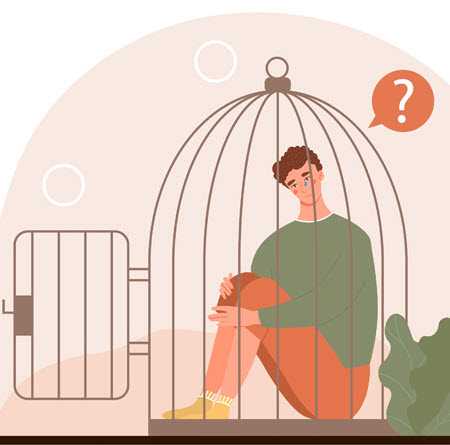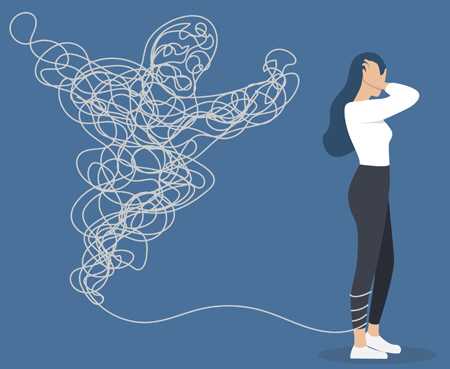 Some things shock your whole world…
Some things shock your whole world…
Trauma comes in many shapes and sizes, from “small t” to “Big T” traumas.
“Big T” examples are war, abuse, tragic loss, accidents, getting caught in the ocean’s undertow, betrayal by loved ones.
“Big T” examples of trauma consequences indefinitely live on in the mind. Trauma causes stress hormones to be released by the body, stifling efforts to “get over it.”
The “little t” traumas can stem from rejection, failure, public embarrassment, break-ups, exposure to family fighting, or protracted legal proceedings.
Images, flashbacks, and night-terrors can keep the trauma alive for years to come. In “little t” incidents – although they can be more subtle – the health dangers remain in place.
Constantly on high alert, anxious, checking if the environment is safe. Fear that something bad is about to happen. Loud noises can set off a panic attack. Afraid to fall asleep alone, “I don’t think I’m safe when I’m asleep. What if someone comes in the room?” And… the nightmares are terrifying.
There’s nowhere to hide. Nothing feels safe anymore. “I wish I could feel the way I did before it all happened. Not being aware of the dangers in the world… The ignorance was bliss.” “Trusting anyone seems impossible, knowing how badly they can hurt me.”
Expectations that things will be okay have begun to feel like a naïve fairy tale. Being trapped in horror can’t go on forever. In desperation for relief, the mind craves escape, pitching ideas that don’t align with values – substances, acting out, risk-taking – anything powerful enough to forget the horror.
 When your mind and body are stuck in survival mode…
When your mind and body are stuck in survival mode…
Your psychological “alarm system” keeps stress hormones in your body – even though the danger has passed. A new default setting gets locked into place. You experience physical sensations such as tightening and burning in the chest or abdomen, shortness of breath, sweating, increased heart rate, insomnia, feeling more aggressive, and paranoia. These are becoming frequent – and getting worse.
Survival wisdom and instincts evolve to address new possibilities of unprecedented danger experiences in history. Instincts geared toward self-preservation now operate in overdrive, constantly on high alert, making daily mundane activities feel threatening.
“The fear makes me feel like prey all the time…”
Each time the memories are triggered, survival instincts dominate and cause tunnel vision that makes it hard to function.
The sensations in your body and fear in your mind can be unbearable, overwhelming your ability to cope.
 Traumatic experiences are complicated, and…
Traumatic experiences are complicated, and…
Other emotional issues almost always accompany them.
Trauma causes profound changes. It unroots life and changes the game. Chronic anxiety, depression, fear, loss of enjoyment in life, sleep difficulty, panic… The list goes on. The consequences are severe. The consequences can empty, demoralize, and humiliate, leaving a shell of what once was a beautiful life.
“It’s like my full understanding of reality was wrong.”
“I don’t even know who he is… All of the years together and to think he was with someone else and I never knew.”
“Did he ever love me?”
“How do I know that someone else won’t do that?”
“I felt safe. I felt loved at times.”
“It was all a lie.”
“This world is evil, and I will never trust anyone except myself ever again.”
Trauma requires a special kind of therapy.
Even the thought of talking about your trauma can cause extreme anxiety – a strong desire to escape. Feeling a sense of safety can go a long way.
Traumatic experiences prevent access to the logical mind. Therefore, trauma therapy involves grounding exercises to supplement the process. The idea is that we collaborate and find a way to talk about the issues without reliving the trauma.
Different approaches work in different cases. Going at a comfortable pace is most important – but don’t be discouraged by the process as tolerance to address trauma increases as we work together to build resiliency in the process. We will find ways to “short circuit” the nervous system and remain present.
 The good news is that recovery is possible.
The good news is that recovery is possible.
Trauma is a normal human response to experiences that shock us. Please don’t feel intimidated by it.
Trauma feeds off fear. In the kid’s movie, Monsters Inc., an operating a power plant gets energy from the screams of children in their sleep. The most successful monsters elicit the loudest screams producing the most power! When a child isn’t afraid of the monster, no power is produced for the plant!
We will work together and get you away from being a scared child! How well we will use our five senses, eye-spy games, and other fun mindfulness activities – even holding ice-cubes while talking – can short-circuit the stress response!
The bottom line is we will keep putting one foot in front of another and get it done as the ancient sages suggested for eating an elephant – bite by bite.
It’s time to free yourself from the darkness of your past.
If you feel like you can relate to the information about trauma and are struggling from the torture that trauma unleashes, please, muster up the courage and pick up the phone.
I have worked with countless individuals who have struggled with these very issues and witnessed them get well.
Trauma can feel too scary to address, but I assure you it gets easier. Reach out for a free consultation: (561) 717-3227.

